Film Discussion: Call Me By Your Name
A roundtable discussion on Luca Guadagnino's highly acclaimed new film.
February 5, 2018
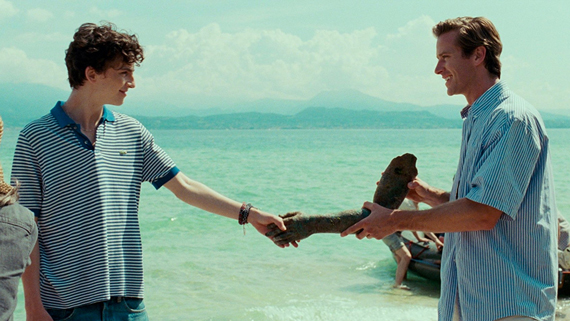
Elio and Oliver (all photos courtesy of Sony Classics).
Emma Gerden: So on Saturday night, we all saw “Call Me By Your Name” directed by Luca Guadagnino. This is just such an iconic LGBT movie, everyone was so excited to be there. The atmosphere was so fun.
Bailey Nemirow: And it’s not just LGBT, it’s also a coming-of-age story. Anyone can relate.
Lilly Omirly: Anyone can relate to any one piece of the film, and apply it to their own lives in some form.
EG: So, heads up to everyone reading this – we absolutely love this movie. It’s incredible, and we cried our eyes out. So this is more of a praise of things that were done well, rather than criticism. Because honestly, to us, there was nothing to criticize.
BN: This is the best movie I’ve ever seen.
EG: Agreed.
LO: It’s one of the best, for me.
EG: It’s also worth noting that “Call Me By Your Name” is originally a book by André Aciman, and we all read it prior to watching the film. Beautiful book that the film matched almost perfectly.
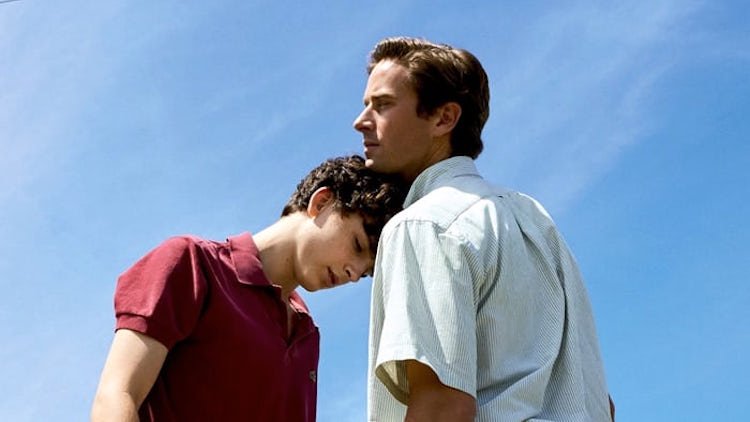
LO: They both add things to the overall factor.
EG: Because the book is so, so introspective – it’s in Elio’s point of view, so we get pages and pages of inner-dialogue, like no other book I’ve read before – the movie is so great to watch visually.
BN: I also loved that the film had no voice overs. They didn’t underestimate the audience, and left us to draw our own conclusions. It didn’t act like the audience was stupid.
LO: Yeah, it was very real and organic. I think a lot of times films depend on having that narration to further explain things, but CMBYN was able to give us these small details through creative filming technique and great acting.
EG: And with that point, let’s get into the acting.
ACTING
EG: Okay, well, I’m about to cry. Deep breaths. So Timothee Chalamet was – he left me speechless. An unbelievable actor, especially for being so young. Give that boy the Oscar he deserves.
LO: I couldn’t imagine the roles being played by anyone else. And it may just be the authenticity of the location, since it was shot in Italy, but it added to their acting and the realness of the relationship.
EG: Timothée Chalamet plays Elio Perlman, a precocious Italian teenager, and Armie Hammer plays Oliver, the philosophy graduate student staying at the Perlman villa for the summer.
BN: Timothée is also bilingual, because he speaks both English and French fluently, but he also had to learn Italian for the role.
LO: It added such an amazing element to the script, being able to switch languages. Sometimes films can get caught up in the languages, but it felt so blended.
BN: It was like one fluid motion. You kind of almost didn’t notice when the family was switching languages.
LO: The languages transitioned with Elio’s attitudes and his emotions, and his attitudes towards other people. For example, when he talks to Marzia, the local girl he has a flirty relationship with, he uses French. And then when he talks to Oliver, he uses English. He doesn’t have to hide behind Italian and French, he’s just blatantly saying what’s on his mind, and that’s what makes their relationship so special.
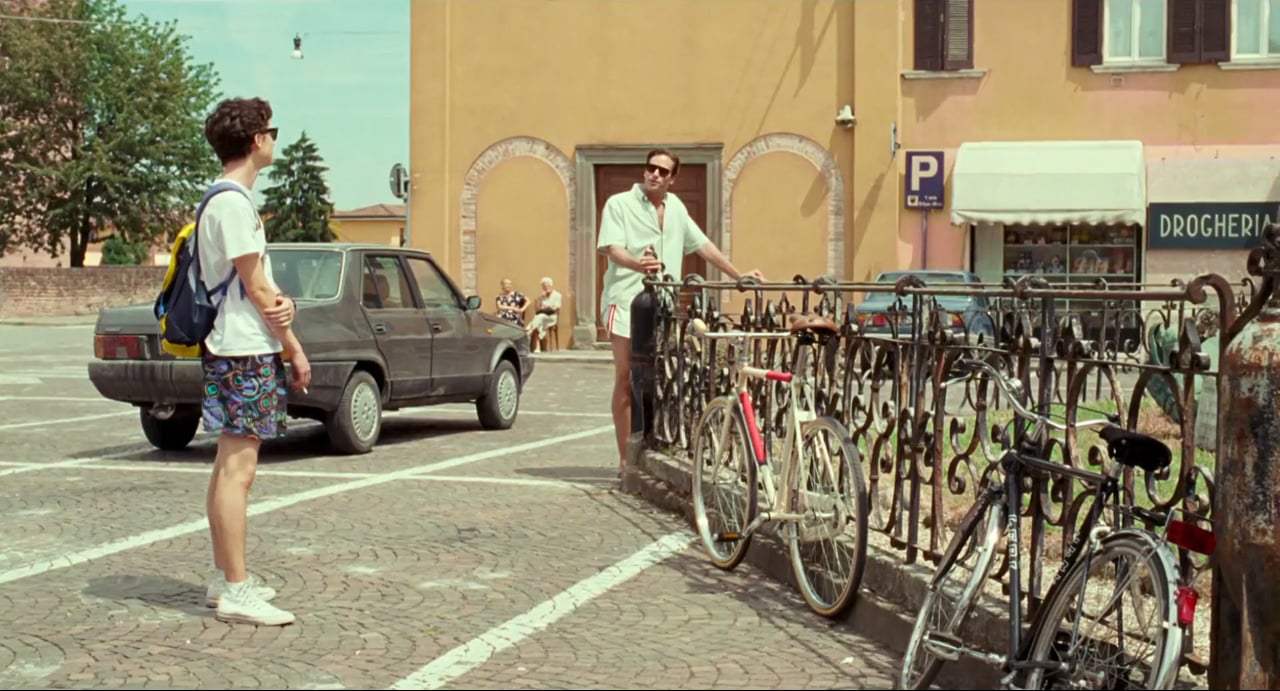
BN: I think it’s interesting that Oliver and Elio talk in English, and it really makes a statement when they’re downtown in all these Italian locations. It’s like a fantasy in this specific moment in time for them.
LO: It’s kind of like the different fronts you put on when talking to different people. Around your friends you may be more casual, around your family more polite, et cetera. All the different sides of Elio.
EG: The amazing thing about Elio is that he’s so complex. He’s probably the most layered character I’ve ever seen on screen. It’s absolutely incredible. I also want to bring up Michael Stuhlbarg, who plays Elio’s father, Mr. Perlman. I won’t give away any spoilers, but there’s a monologue he delivers at the end of the movie – that’s when I really started crying. It’s honestly one of the best acting I’ve ever seen, period. That monologue – honestly, if someone reading this review is on the fence about seeing the movie, watch it just for the monologue scene. Really, it was incredible. And then you’ll fall in love with the rest of the movie.
LO: There’s this other scene I love where these family friends of the Perlmans’ come to have lunch. Most people might overlook this scene, and just label it as ‘comic relief’, but it has this deeper message. It almost breaks the fourth wall, in the film. At one point, one of the friends goes, “movies are a reflection of life”. It’s in the midst of them yelling and arguing about politics in Italian, and there’s this one line that stands out. It’s the director just winking at the audience – like, by the way, you’re watching a film that’s a reflection of life. For me, I was taken out of the universe of CMBYN and back into reality, and that I was watching a movie.
EG: The thing about CMBYN is that it’s so good at sucking you in. When it ends, you don’t realize that two hours have gone by.
BN: When I realized it was ending, I got a little panicky. I didn’t want it to end.
EG: Exactly. I was so spellbound, it was like I was in a trance. Timothée Chalamet and Armie Hammer, as well as the gorgeous Italian setting, pulled me entirely into the movie. I also want to talk about their chemistry – I have never, ever, ever, in any romance movie I’ve ever seen, ever, believed in a relationship so much and seen such a great dynamic. Without Chalamet and Hammer together, there would be no movie.
LO: It also didn’t feel cheesy at all. It was just two people, gender and sexual orientation thrown out the window, that were just in love.
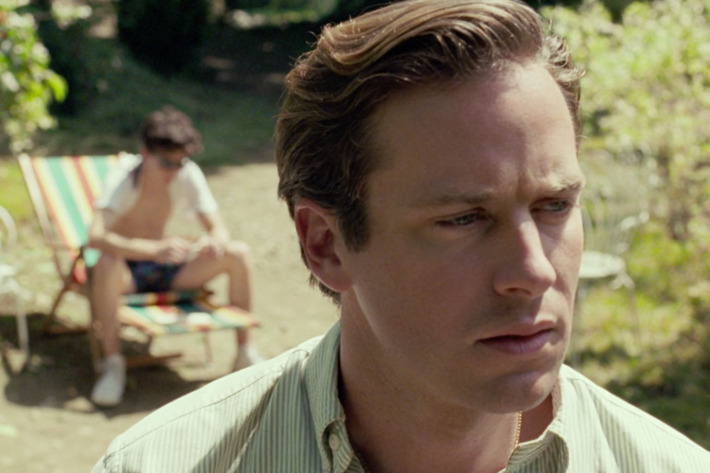
EG: That’s the thing that I love about this movie. It’s easy to label this a “gay” movie – cause I guess it is, it is the relationship between two guys, although technically, both characters are most likely bisexual, especially Elio, but now I’m getting off track – the point is, at the heart, it’s simply a love movie.
BN: It’s interesting because there’s also one other gay couple in the movie, just in one scene, who are family friends of the Perlman’s. They were in more of a “stereotypical” relationship as a gay couple, but they were very happy and out. And that was unique in a period film – since this takes place in 1983 – and it really stood out to me.
EG: That’s one thing that makes this movie so sad, to me, not to give away any spoilers – but Elio and Oliver are both dealing with their sexuality, and it’s not always easy and smooth and definite. And they see this happy, comfortable gay couple – two guys that are happy and free to be themselves – but to them, it still seems out of reach. This movie is not a “typical” LGBT movie because there are no obstacles and no plot stereotypes. There’s no HIV/AIDS, no one gets disowned, no one dies – it’s an internal struggle. Like the iconic quote from the book and screenplay – “Is it better to speak or die?” And that’s what this movie is about. And that’s what makes it so beautiful.
BN: I really loved the scene where they’re both looking out at the gay couple leaving from their separate balconies, and Elio notices that Oliver is looking down as well. It’s like they both have that desire, but… I’m about to cry. The chemistry between them is insane, and it’s so emotional.
LO: Their love is just real. It’s the most simple and basic way to explain it.
EG: I agree. Alright, we pretty much covered it, but let’s get into plot quick.
PLOT
EG: Elio Perlman is a 17 year old boy who’s extremely gifted musically and intellectually. He’s incredibly book-smart, and is in a very loving and cultural family. He has an ongoing relationship with Marzia, a local Italian girl, but falls deeply in love with Oliver, the summer guest.
LO: And despite his intelligence, he lacks social awareness, in a way. Which goes into Elio and Oliver’s relationship. Elio was not always aware of Oliver’s hints.
BN: There’s a scene at the beginning of the movie when Oliver touches Elio’s shoulder lightly and Elio pulls away, surprised. It’s a really nice start to the subtle hints that show the feelings between them.
LO: It’s like a push and pull.
BN: If this was a romance between a guy and a girl, it’d be really clear that something was going to happen. And it kind of transcends the fact that this is an LGBT movie in a sense, because this is just a summer romance, despite the gender. And it adds a lot to the film, the way it’s written. It transcends its categorization.
EG: I agree. And I think that about sums up the plot – summer romance, Italy, 1983, coming-of-age, an organic and passionate true love.
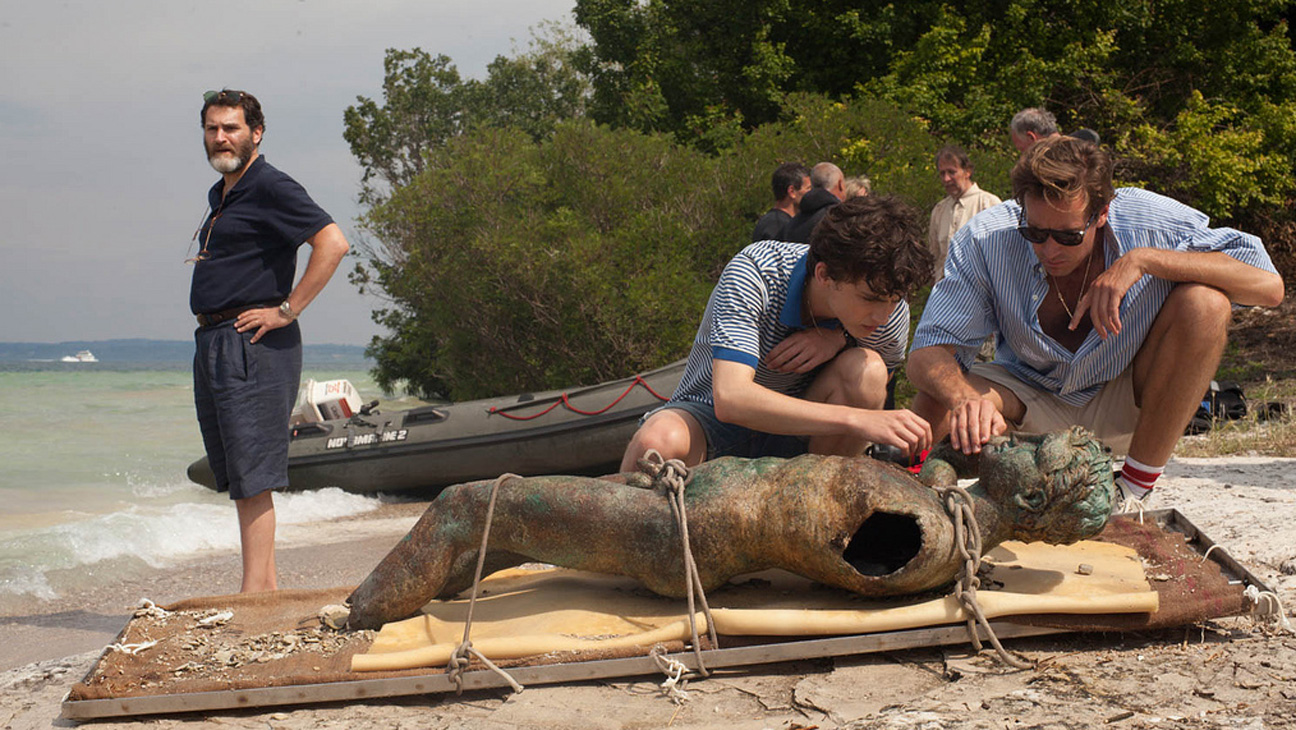
BN: Yeah, it’s coming-of-age in that both the characters are in transitional times in their lives.
EG: Also, maybe we should mention that there’s been a bit of controversy about the age difference between the two characters. Some people have been labeling the movie as pedophilic, as Elio is 17 and Oliver is 24. Just looking at the age gap, I can understand why people may have some initial concerns. But the relationship is so pure and positive in both the film and book. Elio is the one that goes after Oliver, and even after the two begin the relationship, there’s nothing predatory at all. Oliver is really the more vulnerable one – the relationship feels so evenly balanced. If anyone making these claims actually reads the book or watches the movie, they would understand. And honestly, if this were a straight romance, no one would care about the age gap. Dirty Dancing has the exact same age difference. Really, all pedophilic claims are just disguised homophobia.
BN: I was originally concerned about the casting, but when I saw the film my opinion was completely transformed. Armie Hammer as Oliver worried me because not only looks older than 24, but is himself in his early thirties, but I was absolutely blown away by his performance. He embodied the role of a grad student and was so lively. The dynamic between Elio and Oliver felt in no way predatory… it was simply a love story and everything besides their emotions and chemistry felt negligible.
EDITING
LO: The style in which it was edited was amazing. There was a very defined color palette in the film. There’s a short scene that broke character in Elio’s dream sequence, and it made that scene pop out even more to the audience. You’re going through this whole trip, they’re in love – and then suddenly there’s this very jarring, almost disturbing sequence, relationships turned into something that looked like a horror film.
EG: About that scene, there’s this line I love from the book – “all that remains is dreammaking and strange remembrance” – and that odd dream scene, with the inverted colors, was that line for me seen on screen. And it was amazing.
BN: The transitions were also great.
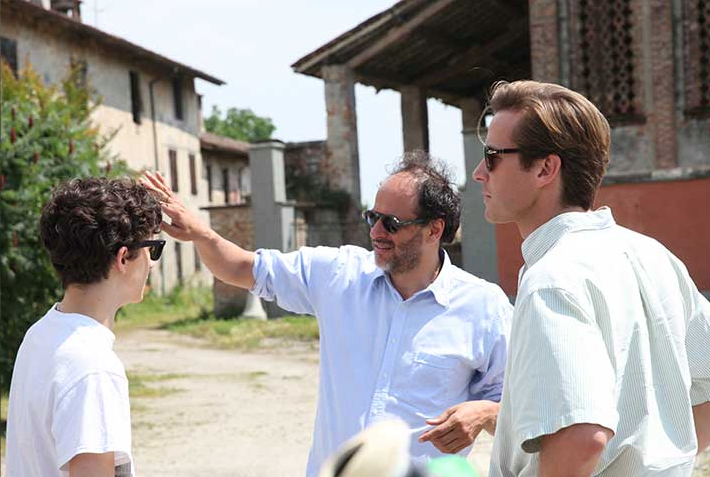
LO: I have never seen such a great balance of cross-fades, when shots fade from one to another, and jump-cuts, when the shots are put back to back.
EG: The type of transition fit beautifully with the vibe of the scene. Luca Guadagnino was the director, and EVERYTHING he did had a purpose. He is amazing, and left me absolutely in awe. I’m such a fan of his.
LO: That’s the best thing I can look for in a film, when everything has intention. Every cut. The genuine care of the movie is to easy to see. You can see and feel it when watching this film.
BN: And it’s not overwhelming, either.
CINEMATOGRAPHY
EG: This movie was shot throughout Italy, mainly in a small town called Crema. So obviously, the shots and scenery were stunning.
LO: I felt like I was in Northern Italy. The shots were not overthought.
BN: They felt so real and raw and authentic.
LO: It did such a great balance of showing Elio’s emotions.
BN: And they jumped up the exposure.
LO: THE EXPOSURE. I can’t. I can’t. I cannot. I loved the exposure. There are certain techniques and rules some films feel like they have to abide by, but Luca knew this bumped-up exposure… he knew that this film didn’t have to follow the rules. The exposure allowed for this summer haze over the movie. It felt like a dream.
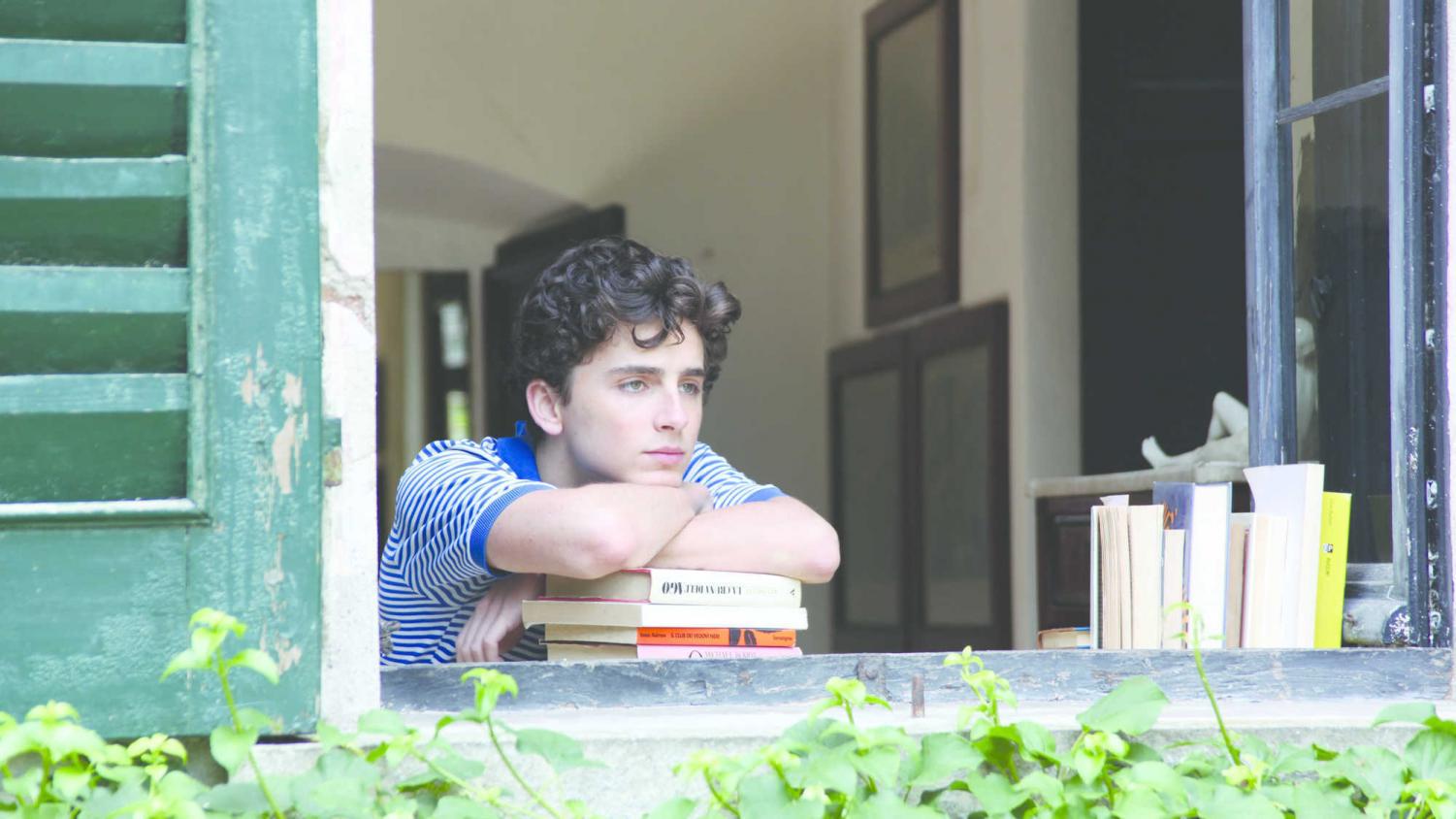
EG: Very reminiscent.
LO: To some, it might feel like a mistake, but it wasn’t. It just looked so good. I can’t even talk about how much I love that.
BN: I loved the colors, too. The blues, greens – everything was so natural. It’s not a dark, dreary story.
LO: Yeah – it didn’t feel oversaturated, but it had a lot of color.
SOUND DESIGN
EG: I read this on another review, but they described the songs as a voiceover of summer itself. Which I thought was such a wonderful way of describing it. In some movies, you don’t notice the score. It just doesn’t stand out. But in this movie, the songs were very, very noticeable. Not only because Elio is a musician, but because summer itself was incorporated into the soundtrack. It was important, and very purposeful.
LO: The film matches up with the sound. They made so much sense together.
BN: The movie had lots of eighties tracks, classical piano pieces which Elio plays, and original songs by Sufjan Stevens.
EG: Those three original songs by Stevens – I cry. I really cry every time I hear them. They truly added something to the film – especially “Mystery of Love” and ESPECIALLY “Visions of Gideon” when played at the end – and it had such a profound impact on me.
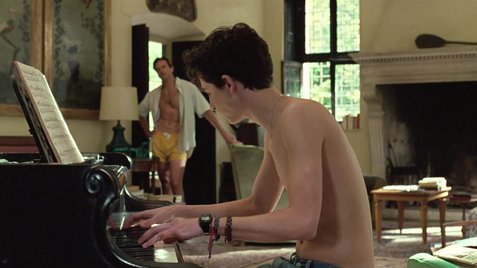
BN: I listened to the soundtrack before I saw the film, and “Futile Devices”, Steven’s third original song, didn’t mean a lot to me at first, but it had so much meaning in the film.
LO: The songs are able to enhance the visuals.
EG: Which is rare, honestly. In lots of movies, even musicals, songs exist just to exist. They don’t mean anything. So for “Call Me By Your Name” to handle each track with such depth and care – it adds an entirely new dimension to the film.
OVERALL THOUGHTS
LO: Overall, I give this 9.5/10. I just, as a filmmaker, have a hard time giving films a 10/10. I think that this is the best book-to-film adaption I have ever seen, and I enjoyed it so much. The minor continuity errors are what bring my overall score down.
BN: Traitor.
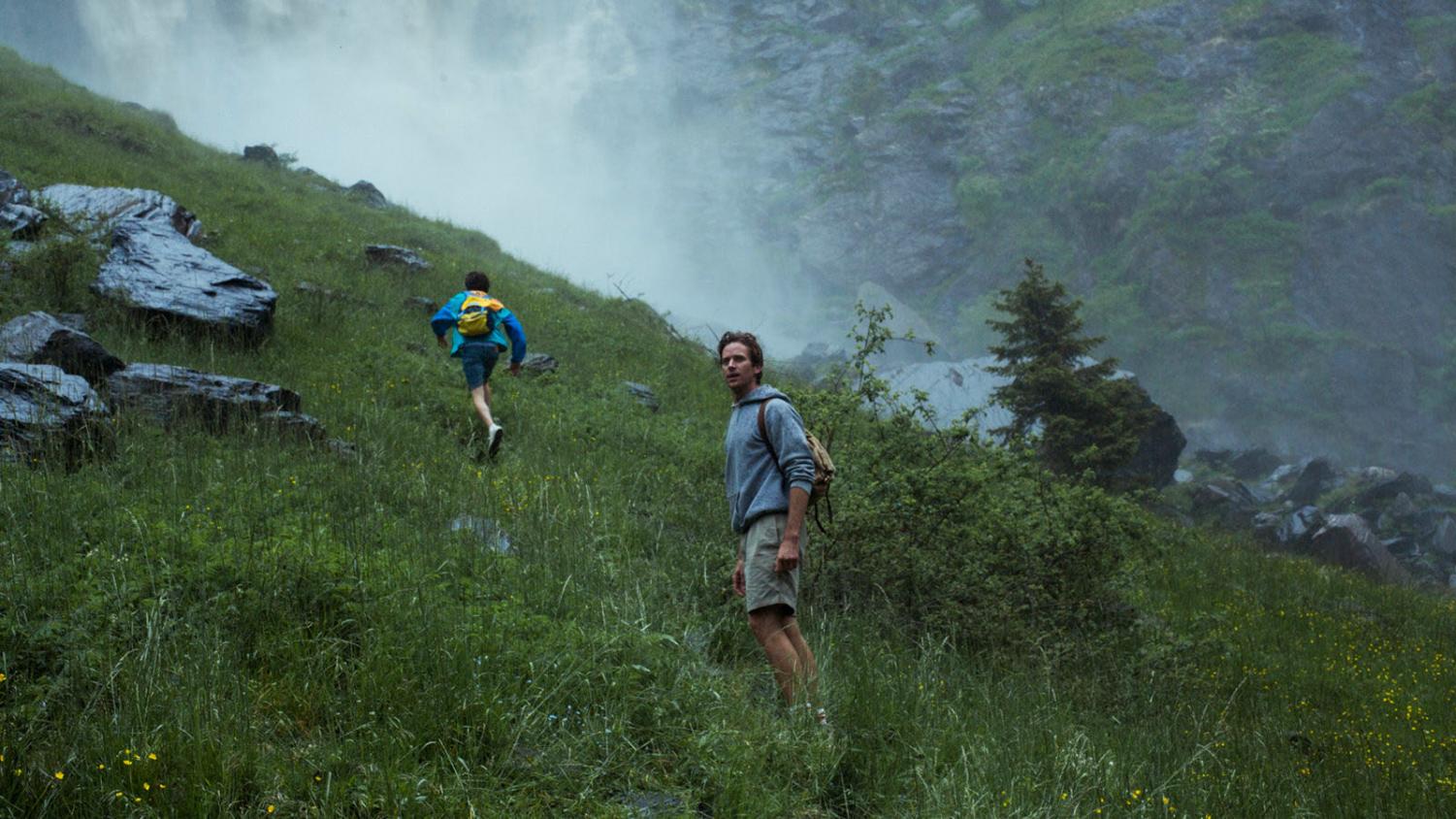
EG: Really, Lilly! For me, this movie is a definite 10/10. No movie is perfect, but this was… I mean, it was incredible. This is what I go to the movies for.
BN: 10/10. Flawless. I ignore the continuity errors for the overall atmosphere.
EG: Everyone go see this movie!
Have you seen this movie? Let us know what you thought in the comment below!
This film is rated R for sexual content, nudity and some language per the MPAA.
emma martin • Mar 6, 2018 at 8:58 am
This article is so good! I want to see this movie so bad now. Love Timothée Chalamet!!